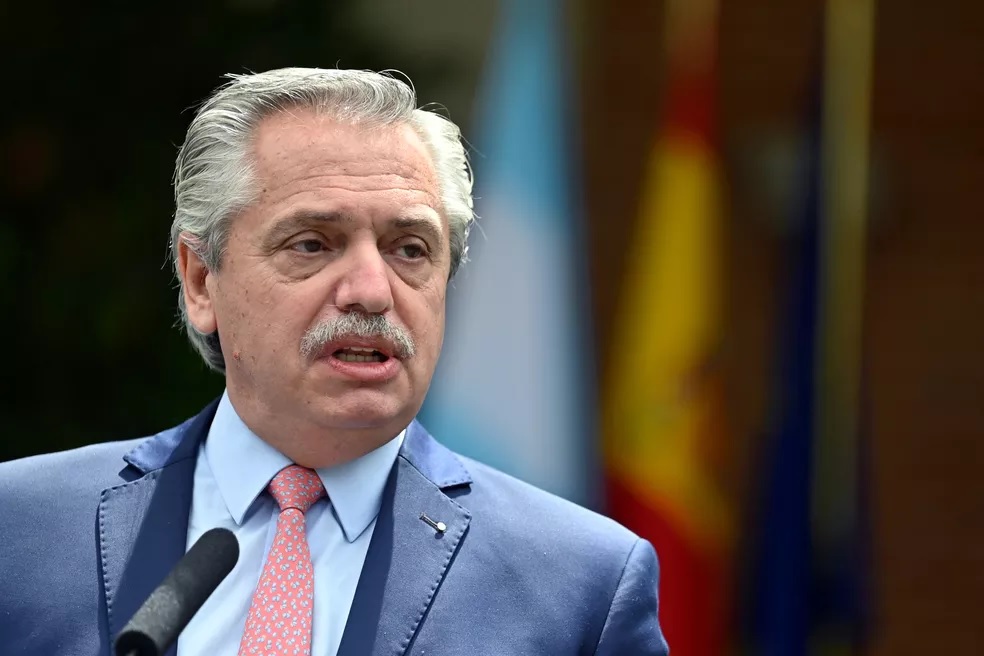RIO DE JANEIRO, BRAZIL – In its annual State Department report on Human Rights in the world, the United States stated that in Argentina, there were in 2021 “serious problems with the independence of the judiciary” and “serious government corruption”.
The report, presented Tuesday in Washington, noted that “significant human rights issues” in Argentina “included credible reports of unlawful and arbitrary executions, including extrajudicial killings; torture or cruel, inhuman, or degrading treatment or punishment by federal and provincial officials” as well as “harsh and potentially deadly prison conditions.”
In addition, he noted that there were “serious problems with the independence of the judiciary; serious government corruption; violence motivated by anti-Semitism; and the existence of the worst forms of child labor.”

However, it clarified that “the government took limited steps to identify, investigate, prosecute, and punish officials who committed human rights violations and corruption.”
On the security forces, the report noted that “there were credible reports” that some of its members “committed some abuses.”
The report stated that “the law establishes an independent judiciary, but government officials at all levels did not always respect judicial independence and impartiality. According to national NGOs, judges in some federal criminal and ordinary courts were subject to political manipulation,” it stated.
“There were no credible reports of political prisoners or detainees,” the report said.
In summary, the report denounced the existence of “serious problems with the independence of the judiciary”.
Regarding the situation of journalists, the U.S. State Department highlighted that “independent media were active and expressed a wide variety of points of view without restrictions”. However, it pointed out that “there were reports of physical aggression, threats, and harassment against journalists”.
On another point, the report referred to the situation experienced in the province of Formosa during the pandemic, noting that “on March 5, provincial authorities in the city of Formosa ordered local police to disperse demonstrators protesting restrictions implemented in response to the COVID-19″ pandemic.
“Police used sticks, tear gas, and rubber bullets against the protesters. National government officials and local and international NGOs expressed concern about the harsh measures,” he asserted.
The report highlighted that throughout 2021 “there were numerous reports of government corruption” and specified that “weak institutions and an often ineffective and politicized judicial system undermined systematic attempts to curb corruption.”
In that framework, it recalled that “several corruption-related investigations against current and former high-ranking political figures, including Vice President Cristina Fernández de Kirchner and former President Mauricio Macri, were ongoing as of September.” The report mentioned “the notebooks case” on corruption in public works and the case “for embezzlement” against former Planning Minister Julio de Vido.
“Corruption and official complicity occurred in some security forces. The most frequent abuses included extortion and protection of those involved in drug trafficking, human trafficking, money laundering, and the promotion of prostitution. Allegations of corruption in provincial and federal courts were also frequent,” he said.
On the situation of children, the report warned of the existence of children “involved in the worst forms of child labor, including commercial sexual exploitation, sometimes due to human trafficking, including forced labor in domestic servitude, agriculture and garment production, and illicit activities such as transportation and the sale of drugs.”
It also warned that “sporadic acts of anti-Semitic discrimination and vandalism continued” in the country.
“The Delegation of Argentine Jewish Associations (DAIA) recorded 507 complaints of anti-Semitism in 2020, compared to 918 in 2019, a decrease of 45 percent. DAIA attributed the drop, especially in acts of physical violence, to COVID-19 blockades and the lower frequency of encounters between Jewish people and people with anti-Semitic sentiments. The most frequently reported anti-Semitic incidents were slurs posted on various websites, often connected with news articles. Other incidents included graffiti and verbal insults,” he said.
With information from TN

